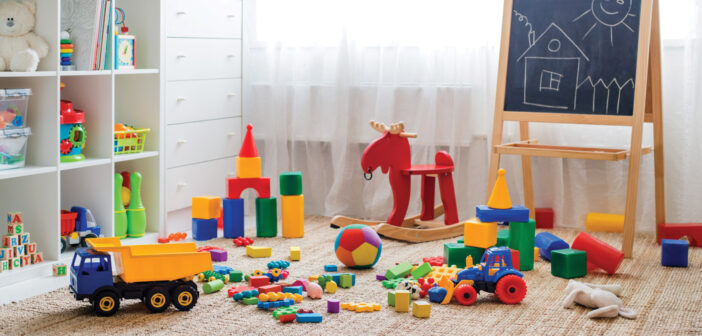Deep down, we all love to play. Be it sports, toys, board and video games, etc., it is where we dream, live, merge with society and find friends. It is important for an adult’s feeling of happiness, reduced stress, and social interaction. For a baby, play is even more important. Babies learn about the world through play. It helps them develop skills that they will use as they grow and continue through life. Skills developed through play are problem-solving, creativity, movement, spatial recognition, logic and the willingness to take risks.
The world around a child makes sense through discovery, and play is the only way a child can experience and act upon their natural curiosity.
The importance of play has been studied by various psychologists and scientists for over a century. Jean Piaget (1962) was the first to make a systematic study of children’s cognitive development and he viewed play as an integral part. His theory of play states that as a child matures, their environment and play in that environment will encourage further cognitive and language development. As children continue to play, they are creating their own model of reality and with each play, their reality is recreated over and over again. Piaget claims that this allows for mental growth by integrating simple concepts with more complex ones. He proposed a “genetic epistemology” (or time-table), established by nature for the development of the child’s ability to think. He conceived of four stages in that development.
1. The Sensorimotor Stage (birth-age 2)
In this stage, the child is concerned with mastering his own physical reflexes and extending them to pleasurable or interesting actions. Here, the child first becomes aware of themself as a separate entity from the world around them. Permanent existence is recognized.
2. The Preoperational Stage (age 2-7)
The child learns to manipulate their environment through inner representations and thoughts. They learn to represent objects by words mentally, just as they manipulated physical objects in the prior stage.
3. The Concrete Operational Stage (age 7-12)
In this stage, logic begins in the child’s thought processes. Objects are classified by similarities and differences. The child begins to grasp the concepts of time and number.
4. The Formal Operations Stage (age 12-adulthood)
This stage is characterized by ordered thinking and logical thought. The child learns to manipulate abstract ideas, make hypotheses and reason with accountability. They can learn the implications of their own thinking and that of others.
Research lists six stages of play during early childhood that are considered important to a child’s development.
Unoccupied Play (Birth-3 Months)
In the first stage of play, the baby is discovering how their body moves in the world around them. It is characterized by the near constant movement of their arms, legs, hands and feet.
Solitary Play (Birth-2 Years)
In this stage, babies are still figuring out the world around them. They play alone as they fine tune their skills and thinking, uninterested in playing with others just yet.
Spectator/Onlooker Behavior (2 Years)
A child in this stage of play, begins to watch other children playing and learns from them. Generally, they are not ready to join in.
Parallel Play (2+ Years)
Parallel Play occurs when a child plays alongside other children but not with them. They are slowly moving towards social interaction.
Associate Play (3-4 Years)
At this stage of play, a child begins to interact with others in small doses. A child may be engaged in a related activity, such as playing on the same piece of playground equipment, but may not be completely interacting with others.
Cooperative Play (4+ years)
This stage is characterized by complete social interaction. The child will play with others and has an interest in both the activity and the other children.














